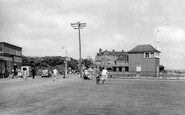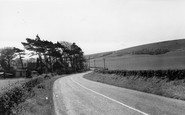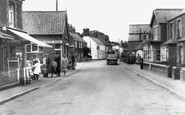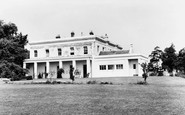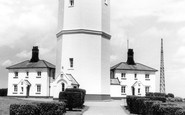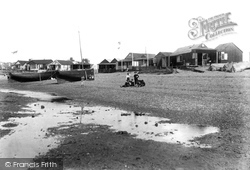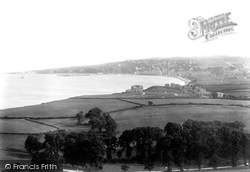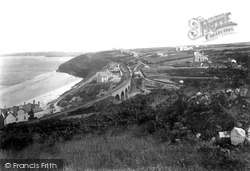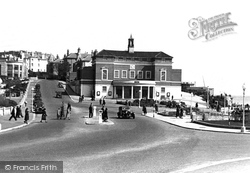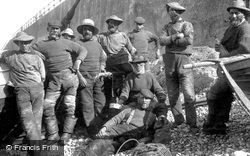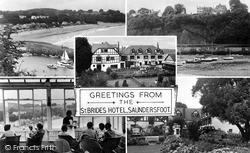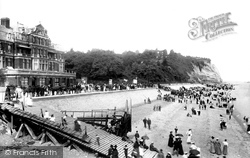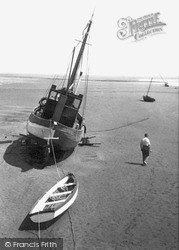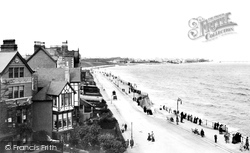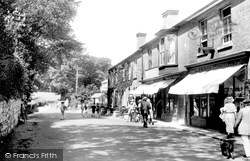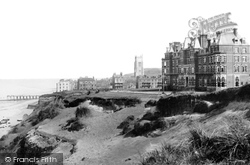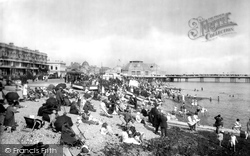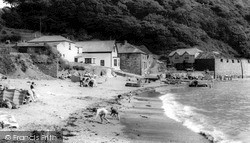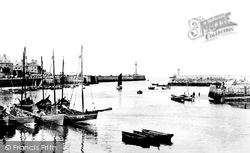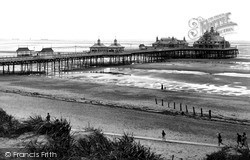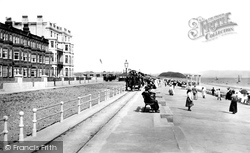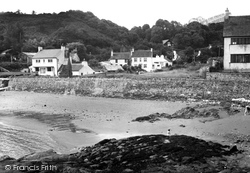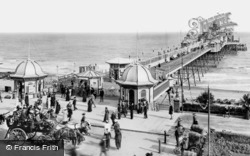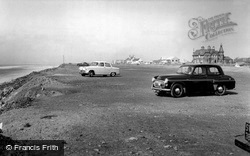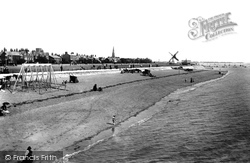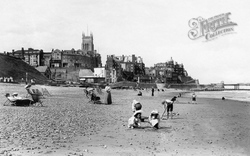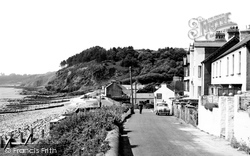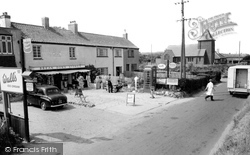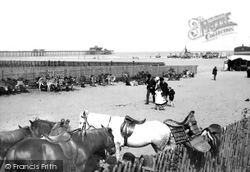Places
1 places found.
Those places high-lighted have photos. All locations may have maps, books and memories.
Photos
11 photos found. Showing results 801 to 11.
Maps
4 maps found.
Books
1 books found. Showing results 961 to 1.
Memories
1,362 memories found. Showing results 401 to 410.
Parade Cafe & Amusement Arcade
The Parade Cafe & Amusement Arcade is on the left in your picture, My Father bought it for 5000.00 in 1956. It stayed in the family until my brother-in-law Billy Burrows sold it in the mid 1980's. Business-wise it was ...Read more
A memory of Mundesley in 1956 by
An American In Barassie
I lived at 51 Becah Road, Barassie, Troon. My step-father was in the U.S. Air Force and stationed at Prestwiick. I remember the gentleman who lived on the ground floor of our house. His name I think was George ...Read more
A memory of Troon in 1956 by
My Old School
Hartford Secondary Modern School, Northwich brings back very fond memories. The teachers were very good and enthusiastic, encouraging us all to do well. Mr Beech was the Headmaster, very keen on cricket. Mr Baines Assistant Head, who ...Read more
A memory of Northwich in 1956 by
The Year I Left The Village I Was Born In
I was born in North Seaton Colliery and have very happy memories of my childhood and all the people who were part of my life. I left at 16 to work in Newcastle, the beach was perfect, never have I had such happy times, picking winkles and fishing for dabs. Brenda Hudson as was.
A memory of North Seaton in 1956 by
2 Years In The Village
Sometime around 1956, for about two years, two of us shared a cottage in Iford village (one of the first two as you came off the main road from Lewes). We worked for Mr Robinson milking his Guernsey herd and doing the ...Read more
A memory of Iford in 1956 by
Albert Hern
My grandfather was Albert Hern. He built the houses on the cliffe - Belgrave. He lived in the end house still standing. He was well known. I lived at 10 Beach Terrace as a child (now gone ) and revisited many times.
A memory of Heacham in 1956 by
Laleham Abbey School
I was a pupil for two years at Laleham Abbey. My maiden name being, Elsa-Marie Burberry - Elsa. I was friends with Phyllis Baker who I remember as having beautiful auburn-red hair and who I think came from Totteridge. Other ...Read more
A memory of Laleham in 1956 by
Marine Crescent
I recall as a child in the 1950s, being taken on outings from my grandparents' home in Litherland via Seaforth/ South Road stations to the beach at Marine Crescent, Waterloo. On a recent nostalgic trip there I was surprised ...Read more
A memory of Waterloo in 1956 by
Port Regis
I remember Port Regis very well, I stayed there as a child. It was a convalescent home then for girls. The nuns used to take us down to the beach every Wednesday afternoon - Kingsgate beach that is. Though it is 40-some odd years ago I ...Read more
A memory of Broadstairs in 1956 by
First Camp Site
Does anyone remember the old camp site run by Mr and Mrs Dymond? It was roughly where Woolacombe Sands is now, near the riding stables. I can recall it was a steep field (no terracing then!) and we used to walk down to the old ...Read more
A memory of Woolacombe in 1956 by
Captions
1,130 captions found. Showing results 961 to 984.
In earlier days a beach community existed: numerous bungalows were built on the sands of the Exe estuary, particularly on the long spit of land known as Dawlish Warren, which stretches to
The fields of Whitecliff Farm (foreground) hosted summer camps for militia and artillery volunteers in late Victorian times.
The railway viaduct crosses the little valley behind the beach, and the station platform is just beyond. Another major engineering feat on this scenic line is the rock cutting in the far headland.
Bournemouth did not exist at all until Mr Lewis Tregonwell built a holiday home in the middle of hitherto wild heathland in 1810. During the 19th century it remained a select resort for the well-off.
Fishermen have to be tough, not only to ply their trade at sea, but also to have the strength to haul their heavily laden boats by hand up the steep shingle beach.
At this time the hotel offered numerous facilities, including 50 bedrooms, bedside lights in all rooms, electric fires in first-floor rooms, a tennis court, a putting green, television, a
In the foreground people access the beach via a slipway. In the distance a crowd gather to be entertained – could it be minstrels or a Punch and Judy show?
By the 1950s, amateur yachtsmen 'messing about in boats' were a common sight.
The beach runs in a glorious sweep around the bay. The sands slope gently, offering safe bathing for children, and extend for a mile and more.
Street Scene c1955 Queen Victoria first stayed on the Isle of Wight at Norris Castle, during the reign of her uncle William IV.
By this time, Cromer had developed into a select holiday resort for the well-to-do, many of whom stayed in the Cliftonville Hotel (right) facing the west beach.
Between the wars, Worthing lost its wonderful town hall and theatre.
Children play on the beach and collect flotsam from the tide line while their parents sit beside windbreaks. The roof on the fish palace has now almost completely gone.
Whitby harbour was renowned for its narrow entry between the two piers with their lighthouses. The whaling ships had to wait for the high tides to carry them through safely.
The pier was designed and constructed by Mr A Dowson and opened by Lord Stanley in 1855. In 1899 the Moorish Pavilion was added, and the Floral Hall opened in 1910.
Horses tread the tramway along Pwllheli's busy promenade at Marian-y-mor (then known as West End). The tramway had opened two years earlier, in 1896, and was closed in 1927.
This small hamlet enjoys a hundred or so metres of beach enclosed by a rocky cove in an idyllic setting.
at all of this watering-place to those who have never visited it, one must mention that there are noble tree-planted streets and shady avenues, an imposing sea-front of about three miles, an excellent beach
Blundellsands beach forms part of the sixteen miles of sand stretching from Waterloo to Southport.
There are swings on Lytham Beach and a few children paddling – no longer to be seen in the 21st century, as the sand is now overgrown with invasive Spartina grass.
With their vivid imaginations taking them away from schoolwork and parental control, the children are digging, building sandcastles or looking for treasure.
The AA sign on the Amroth Arms beckons as a recommendation in this pleasant Pembrokeshire village.
All the way north from Burnham to Brean Down, the six miles of road behind the sand dunes and beaches has a string of bungalows, chalets, shops, caravan parks, amusement parks and holiday camps, as well
This last chapter follows on geographically from where the fourth chapter finished, at Burgh le Marsh four miles west of Skegness.
Places (1)
Photos (11)
Memories (1362)
Books (1)
Maps (4)



